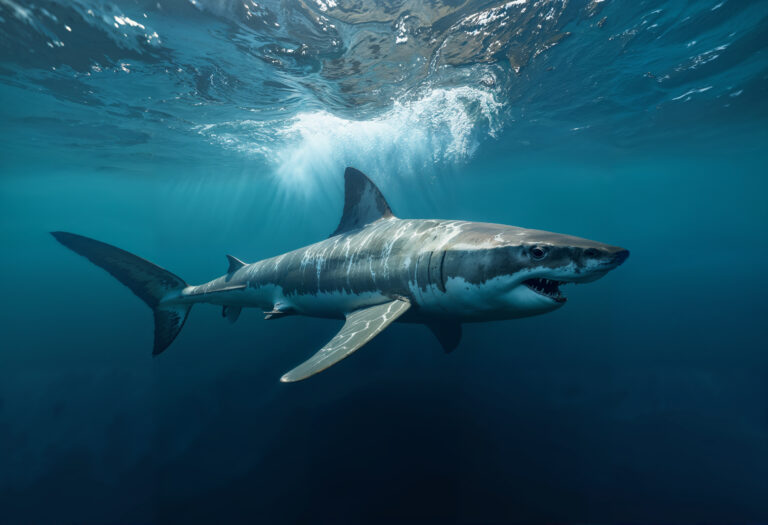By Courtney Cooper
Why Sharks are Critical to Healthy Coral Reef Ecosystems
Sharks are essential for maintaining the balance and health of coral reef ecosystems. As apex predators, they regulate the populations of other marine species, fostering biodiversity and creating a dynamic balance that is crucial for coral health. This complex relationship between sharks and coral reefs is not only a matter of ecological stability but also one that affects marine biodiversity and even coastal economies. Recent studies highlight the importance of sharks in preserving coral reefs and illustrate the negative consequences of shark declines on these delicate ecosystems.
We also discuss further shark facts that you might be interested in! Apex Shark Expeditions provides the best shark cage diving Cape Town experience.
How Sharks Keep Coral Reefs Balanced and Healthy

Sharks and the Coral Reef Food Web
Coral reefs are among the most biodiverse ecosystems on the planet, supporting over 25% of all marine species. Sharks, as top predators in these environments, help regulate the populations of various species, including fish that feed on algae and coral. By preying on mid-level predators, sharks prevent these species from overpopulating and depleting resources essential for coral growth. This regulation is known as “top-down control,” where sharks indirectly support the abundance of smaller herbivorous fish that prevent algae from overwhelming coral reefs.
Without sharks, there is an increase in mid-level predators like snappers and groupers, which can over-consume herbivorous fish. This imbalance leads to algae growth, which competes with coral for space and light, often suffocating and damaging the reef. This chain reaction demonstrates the importance of sharks in coral reef ecosystems, where the absence of these apex predators can lead to reef degradation and loss of biodiversity.
Research Supporting the Shark-Coral Reef Connection
A compelling study that highlights the crucial role of sharks in coral reef health was conducted by the Australian Institute of Marine Science (AIMS) and James Cook University. The research, which examined coral reefs in Australia’s Great Barrier Reef, the Bahamas, and French Polynesia, found that coral reefs with higher shark populations exhibited greater resilience and biodiversity. These reefs were less likely to be overtaken by algae and had healthier coral populations compared to reefs with fewer sharks. In particular, the study found that regions with active shark populations supported a balanced ecosystem where coral, algae, and fish populations existed in a stable dynamic, reinforcing the reef’s resilience to external stresses such as temperature changes and pollution.
The study showed that sharks indirectly boost coral health by protecting herbivorous fish populations, which in turn keep algae levels in check. This balance allows coral reefs to thrive, even in environments exposed to human activity or climate change. In contrast, reefs with depleted shark populations were more likely to experience coral bleaching and algal blooms, which compromise their ability to support marine life.

The Global Impact of Shark Conservation on Coral Reefs
The relationship between sharks and coral reefs is not isolated to one region; rather, it reflects a global dynamic that affects marine biodiversity and ecosystems worldwide. For example, studies from the Pacific Islands to the Caribbean have shown that coral reefs with healthy shark populations are more resilient to environmental changes, supporting diverse species that contribute to the local economy, such as through tourism and fishing.
In South Africa, regions where shark populations thrive, like the coral reefs of Sodwana Bay, experience similar positive dynamics. These areas not only draw tourists but also support local fishing economies by sustaining healthy fish populations.
Apex Shark Expeditions provides the best shark cage diving in Gansbaai, as well as, shark cage diving in Simons Town. We also share insight into the relationship between sharks and the fishing industry.




